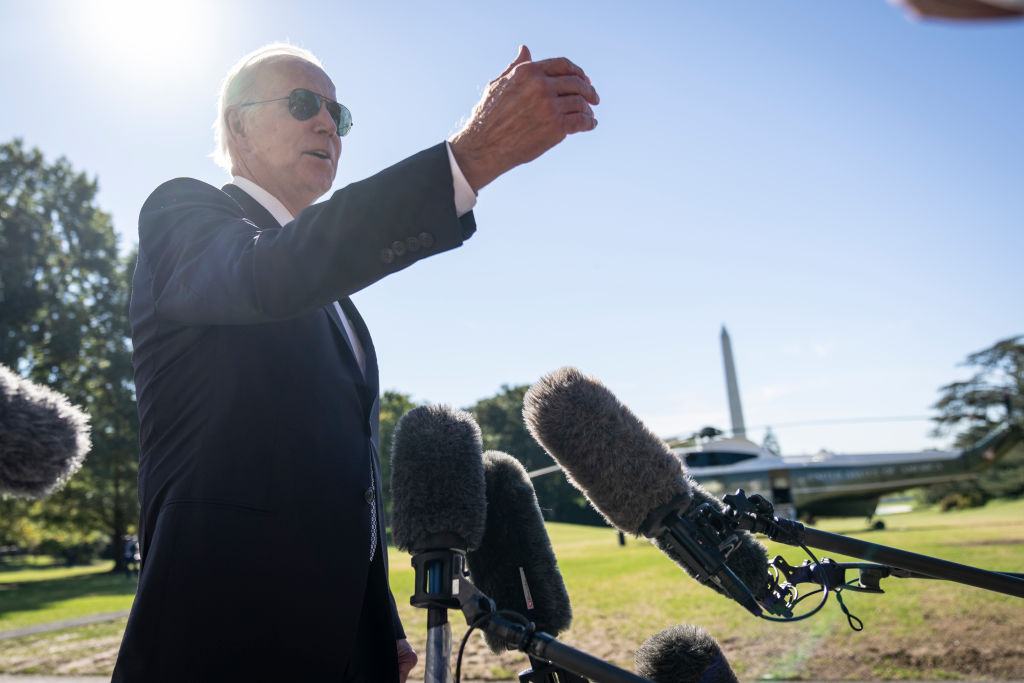President Joe Biden announced Thursday afternoon, October 6, that he plans to undo thousands of cannabis convictions. With a midterm just around the corner, a mass marijuana pardon couldn’t have come at a more convenient – or suspicious – time for the Biden administration and Democrats in general. True motives aside, however, it will give thousands of Americans their lives back. That’s nothing to wave off as inconsequential, but critics on both sides of the aisle argue that it could have been so much more.
Marijuana Pardon
 Ahead of Biden’s announcement, officials spoke of how such an act would clear the names of about 6,500 people who were convicted on federal charges of simple possession, as well as thousands more who were convicted in Washington, DC. According to the District’s Metropolitan Police Department (MPD), there were exactly 6,108 arrests for possession from 2012 to 2019. This pardon covers offenses stretching from 1992 to 2021; it is notable that possession arrests dropped off drastically across much of that MPD data range, from 2,488 in 2012 to just 22 in 2015.
Ahead of Biden’s announcement, officials spoke of how such an act would clear the names of about 6,500 people who were convicted on federal charges of simple possession, as well as thousands more who were convicted in Washington, DC. According to the District’s Metropolitan Police Department (MPD), there were exactly 6,108 arrests for possession from 2012 to 2019. This pardon covers offenses stretching from 1992 to 2021; it is notable that possession arrests dropped off drastically across much of that MPD data range, from 2,488 in 2012 to just 22 in 2015.
Jail and prison time vary from one case and one type of charge to the next, of course, but after the incarceration ends, a felon is a felon is a felon. Armed robbery, assault, kidnapping, and even murder all bear exactly the same “free-world” consequences as possession of marijuana – assuming the amount qualifies as a felony offense rather than a misdemeanor – once the convict is released back into society.

(Photo by Drew Angerer/Getty Images)
Felony records often bar applicants from quality employment opportunities, always removes the right to keep and bear arms – restricting the constitutionally recognized fundamental human right to self-defense – and can even drastically increase the cost and lower the quality of housing, as many apartment complexes won’t rent to felons, period. The practical effect of handing out felonies for marijuana possession is that, after any time is served, America treats potheads as no different than even violent offenders like muggers, home invaders, and domestic abusers.
Presidential Promises
Back in July, Senate Majority Leader Chuck Schumer (D-NY) filed the Cannabis Administration and Opportunity Act (CAOA), which, if passed, would have decriminalized marijuana at the federal level and allowed states to regulate the use of the plant without US government interference. Further, Joe Biden promised decriminalization during his presidential campaign in 2020.
But as Liberty Nation’s Jeff Charles wondered in his July article on the Senate bill, “is this just another cloud of deception?” He astutely surmised: “With the party’s political fortunes in peril, this very well could just be a way to avoid a complete shellacking in November.” Biden’s marijuana pardon carries the stink of the same sort of shenanigans. Remember: Joe Biden has been president since January of 2021, and apparently, all he had to do to “right the wrong” of relegating thousands of Americans to a status slightly less than full citizen was to declare it so.
If the president truly believed such incarcerations were a grave injustice – as he suggested during the announcement of the pardons – why was this not act one on day one of his presidency?
 For that matter, why did he not go all the way, pardoning anyone convicted of any nonviolent marijuana charge, rather than only possession – either this week or months ago when Senators Elizabeth Warren (D-MA), Cory Booker (D-NJ), Kirsten Gillibrand (D-NY), Ed Markey (D-MA), Ron Wyden (D-OR), and Bernie Sanders (I-VT) asked him to do so? Right or wrong, the most obvious answer seems to be that it’s all for show.
For that matter, why did he not go all the way, pardoning anyone convicted of any nonviolent marijuana charge, rather than only possession – either this week or months ago when Senators Elizabeth Warren (D-MA), Cory Booker (D-NJ), Kirsten Gillibrand (D-NY), Ed Markey (D-MA), Ron Wyden (D-OR), and Bernie Sanders (I-VT) asked him to do so? Right or wrong, the most obvious answer seems to be that it’s all for show.
November is right around the corner, and the Democrats and their figurehead need a win somewhere to shift the narrative off of all the failures and setbacks – from the Afghanistan withdrawal to disastrous energy policies to authoritarian mandates and gaffes galore, as well as, most recently, the bad news from OPEC. Pardoning just one group of people while leaving the rest either in jail or in the figurative prison of life as a sub-citizen, and doing it a month before the midterm election, no less seems clearly to be a political trick. Whip out the back-pocket issue to please the masses, and maybe they’ll forget about all our failings and keep us in power.
Perhaps the most telling will be what – if anything – we hear about legalization once Election Day passes.

